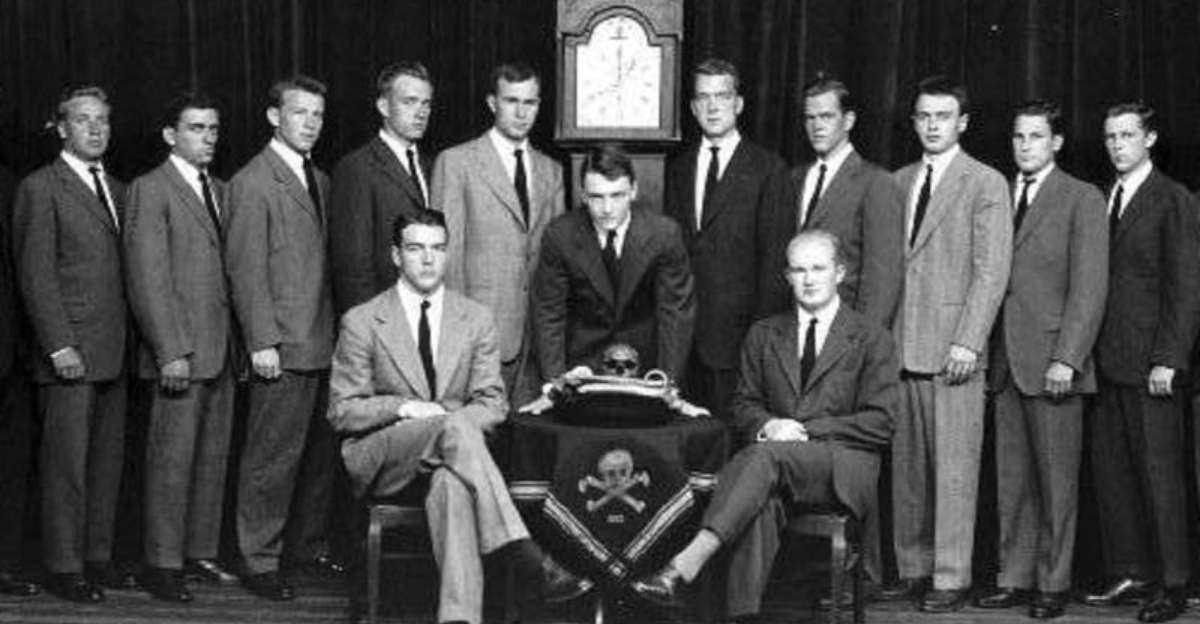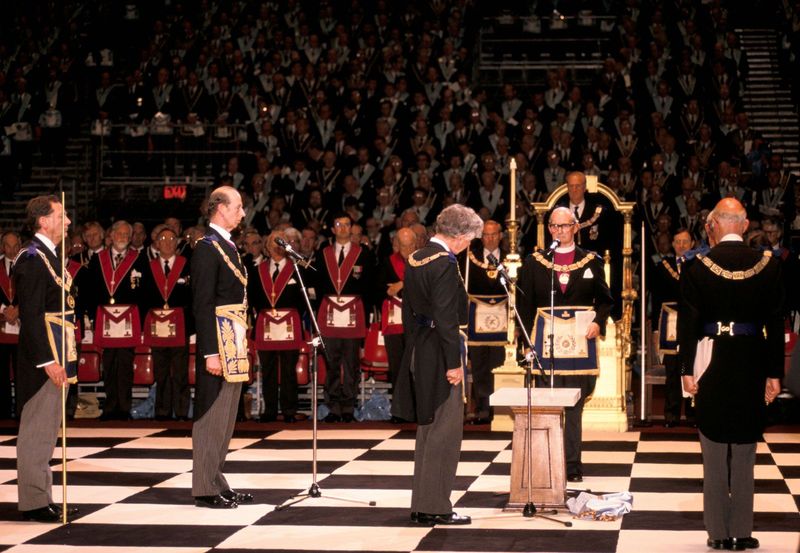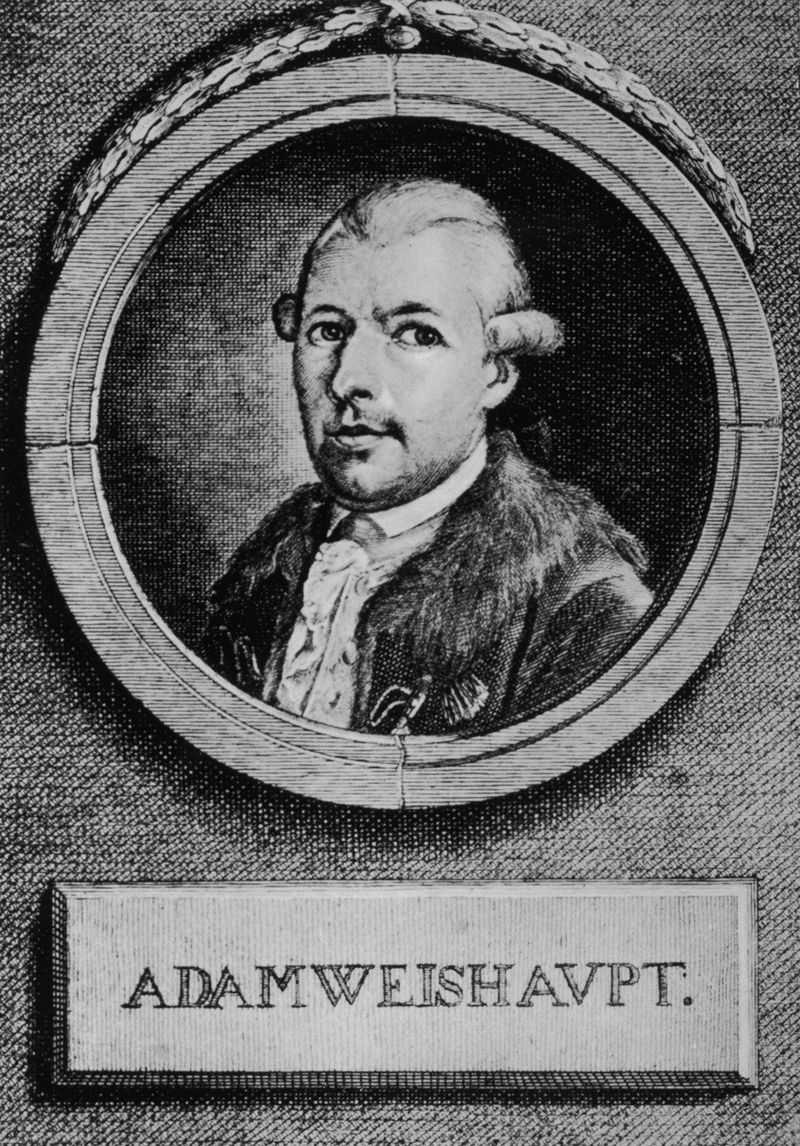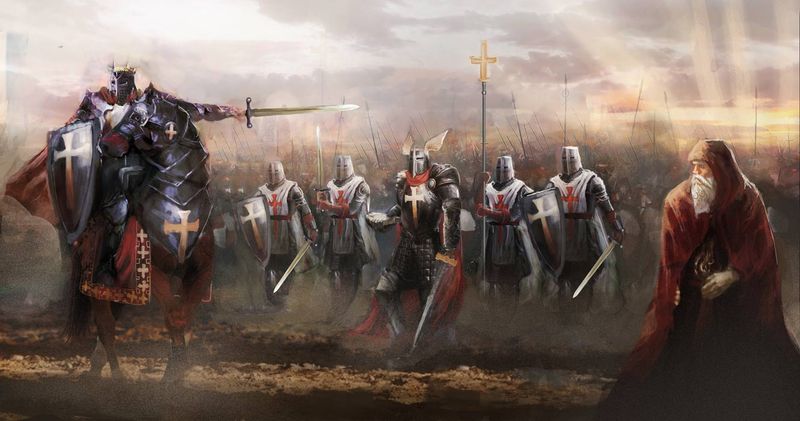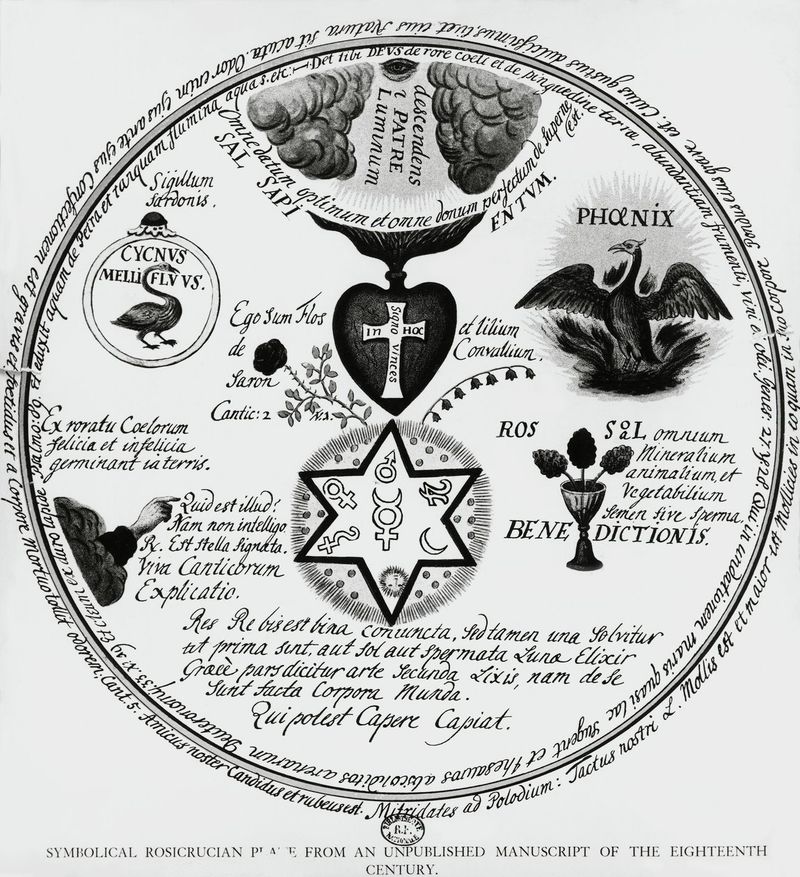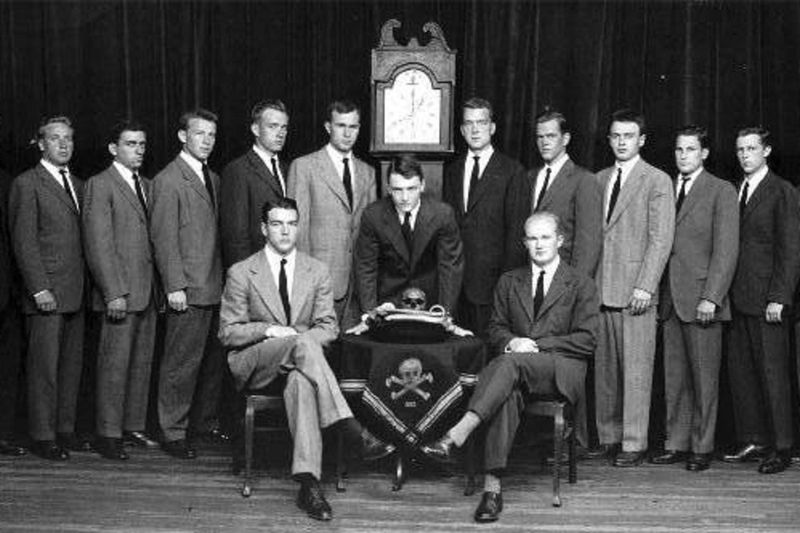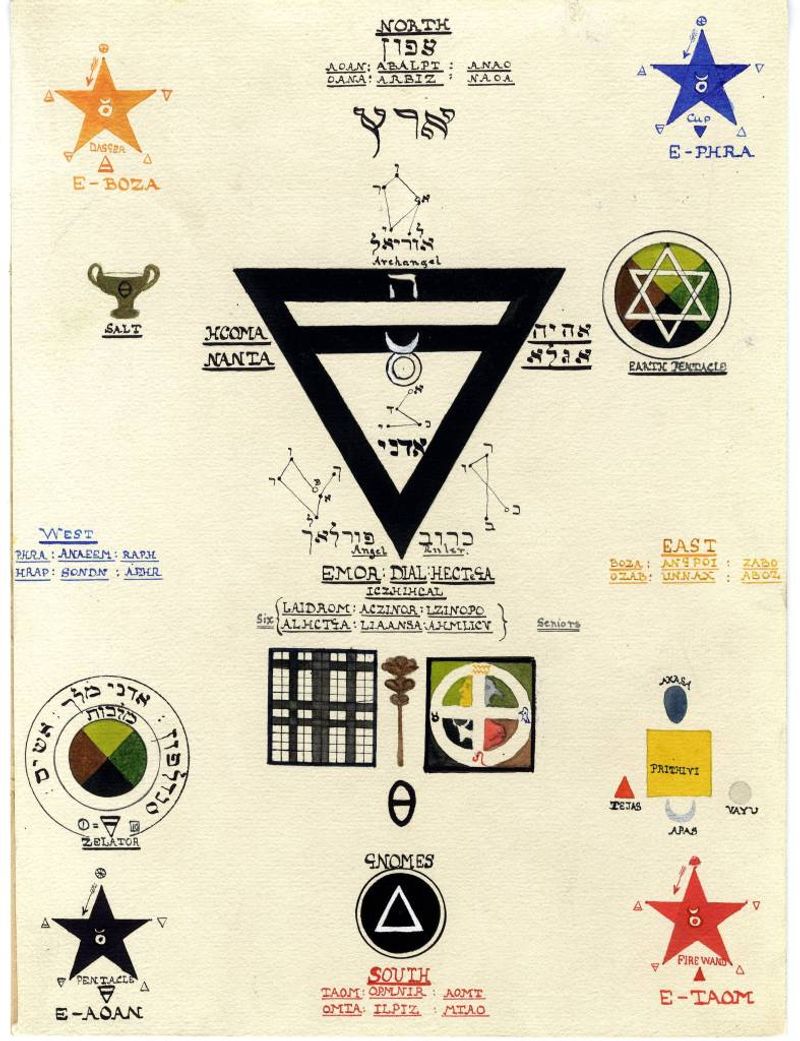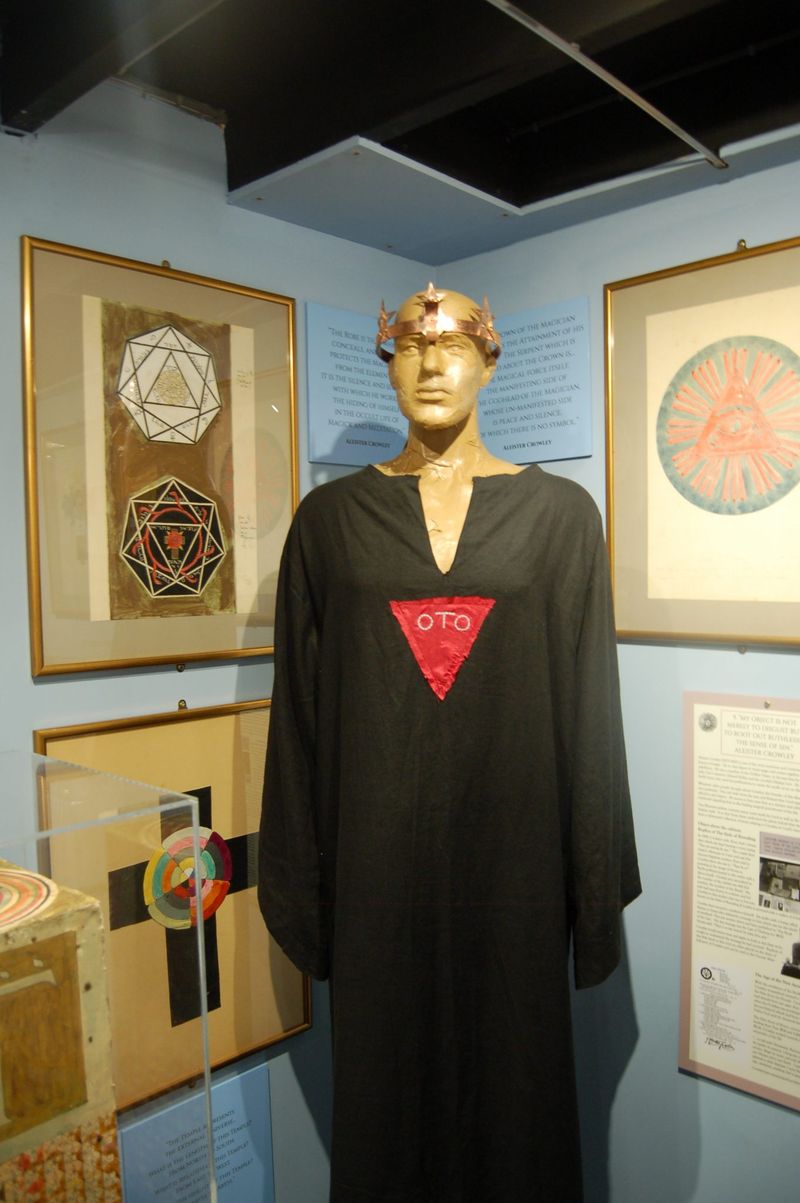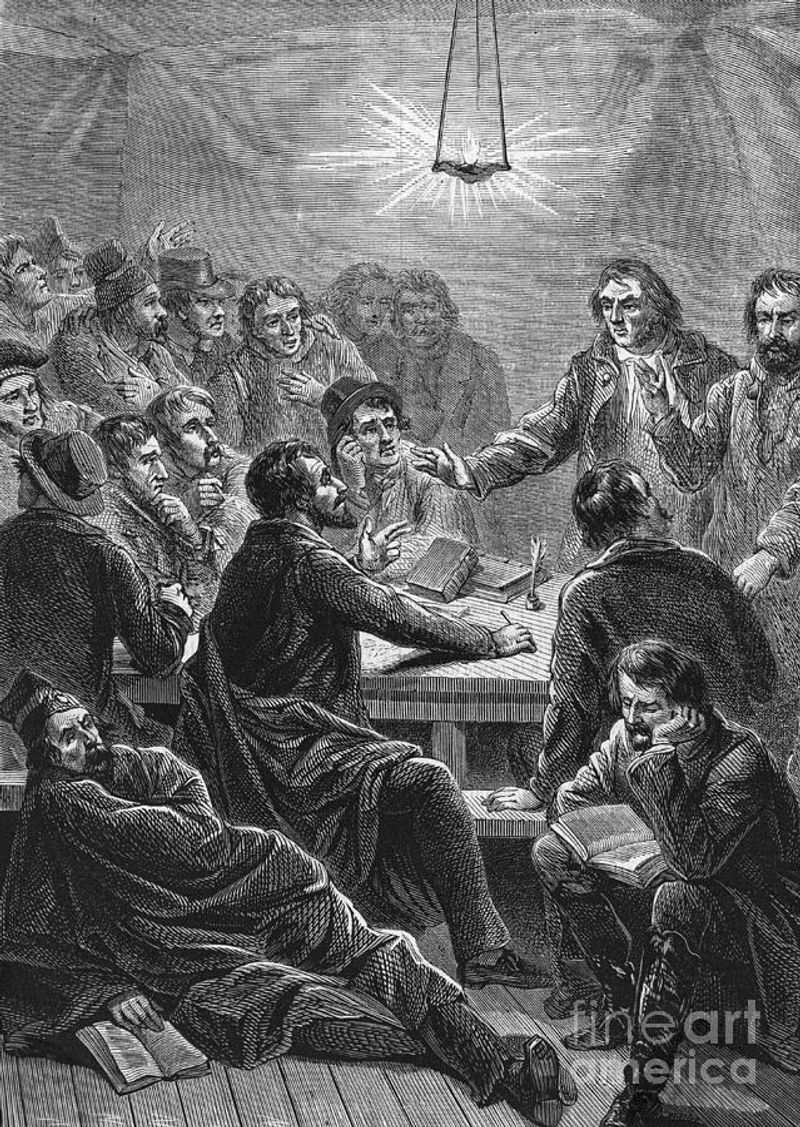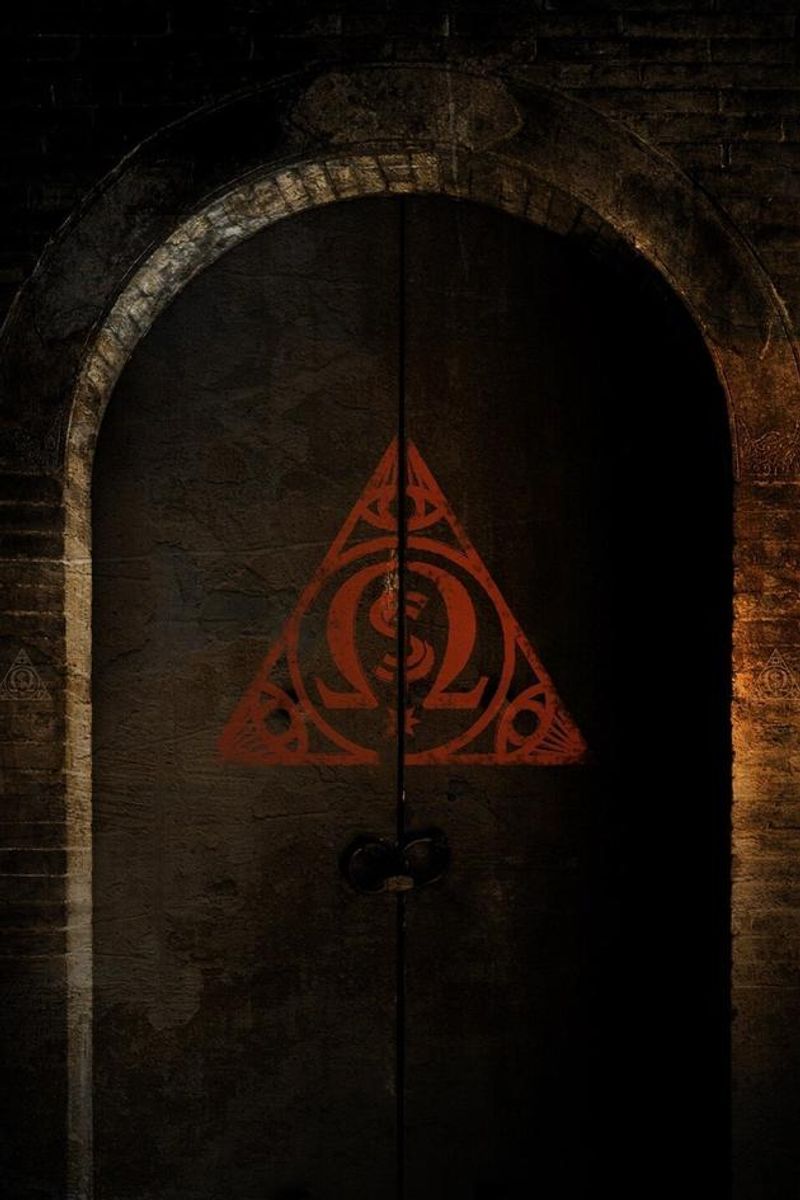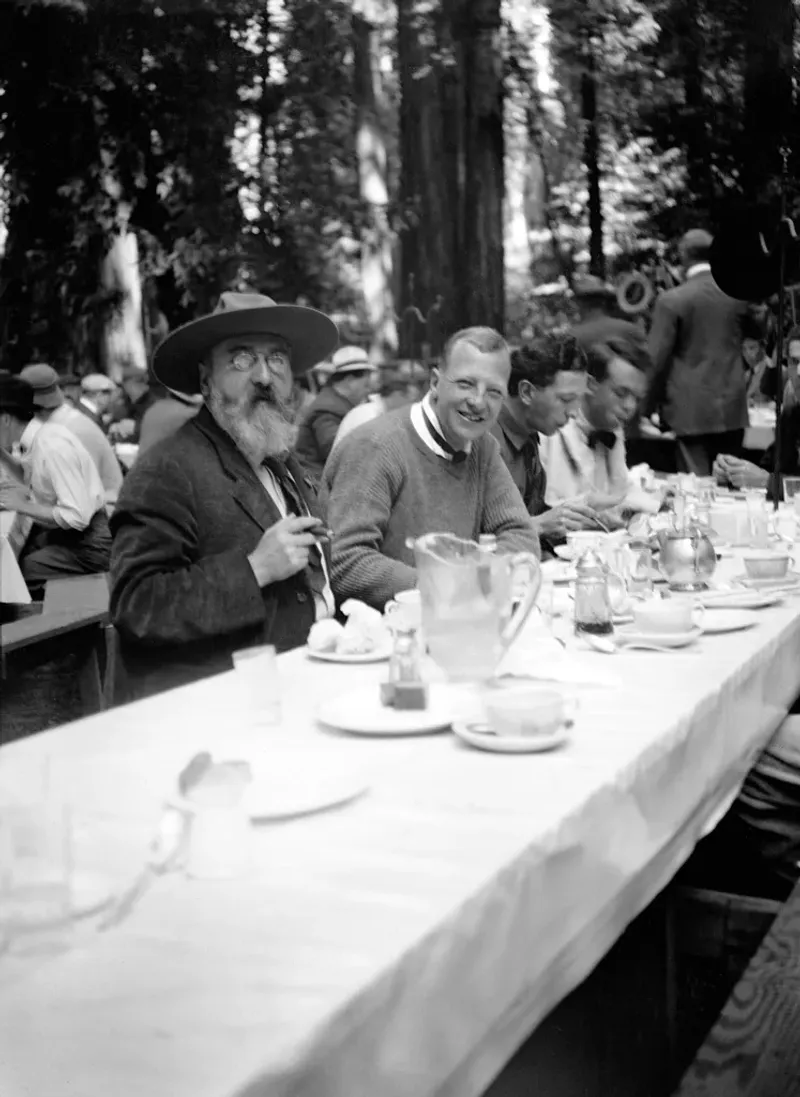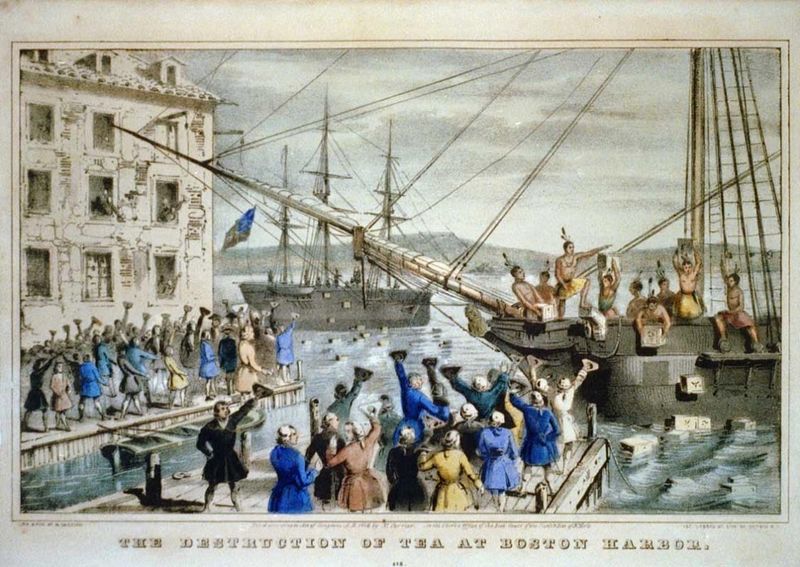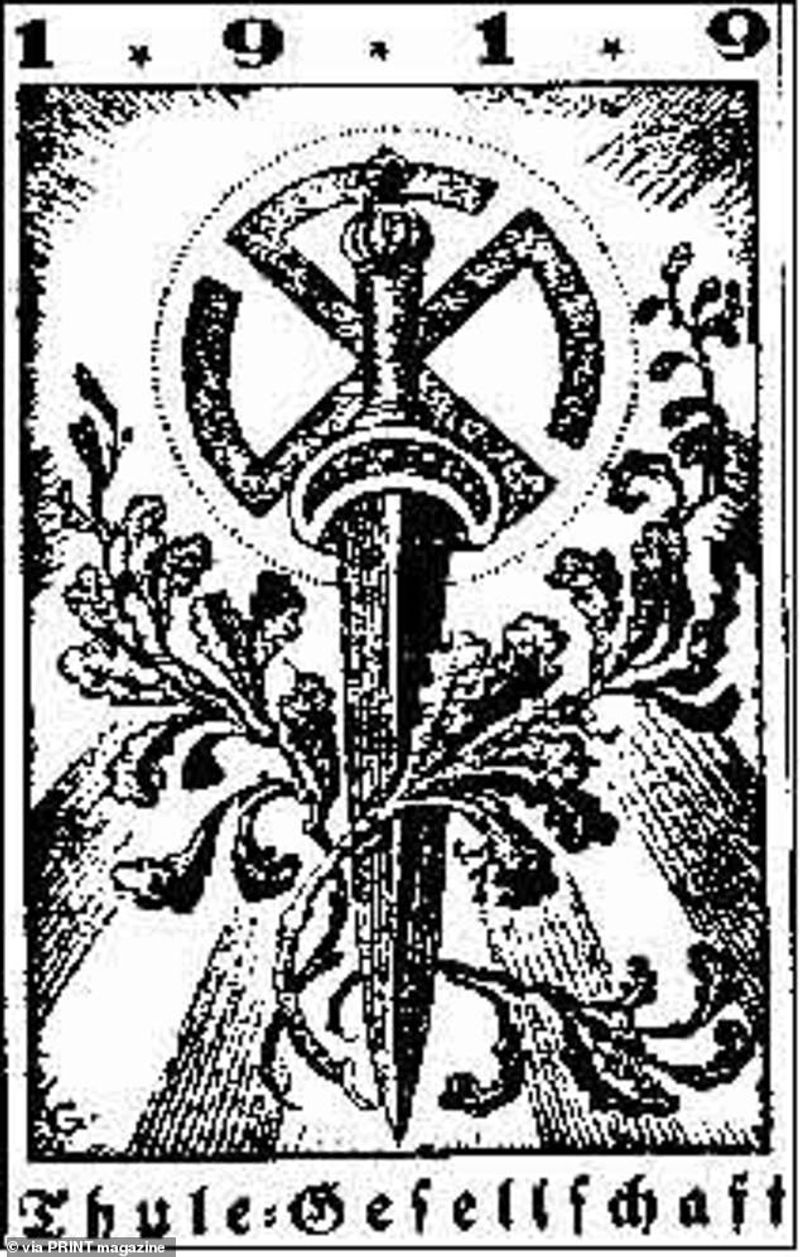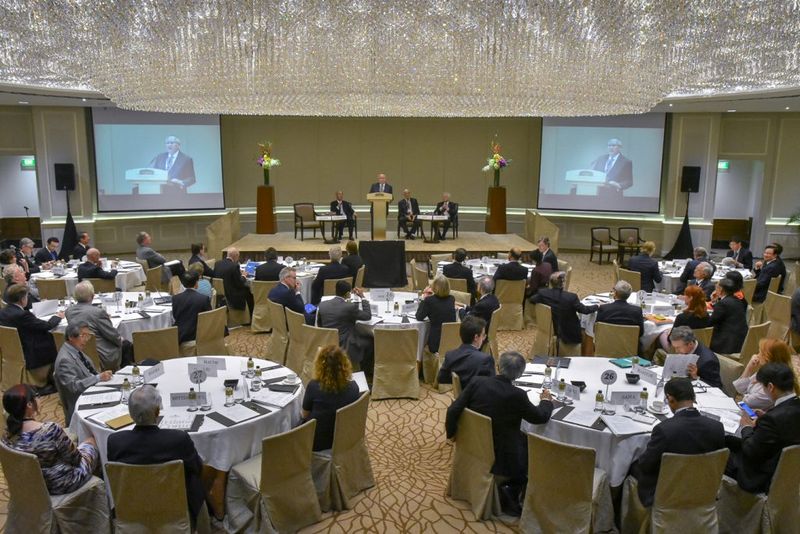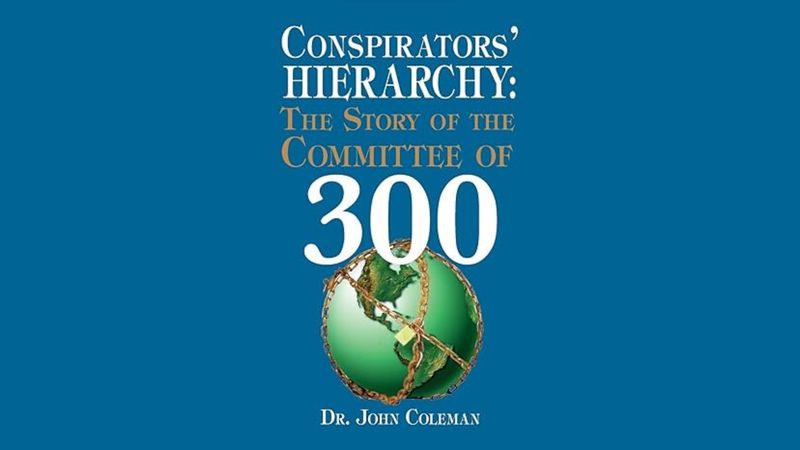Throughout history, secret societies have intrigued and mystified the public. These clandestine organizations, often shrouded in mystery, have played pivotal roles in shaping historical events and ideologies.
From ancient brotherhoods to modern elite groups, secret societies have left an indelible mark on politics, religion, and culture. Here’s a look at 15 secret societies that had a major influence on history.
1. Freemasons
The Freemasons are perhaps the most famous secret society, originating in the 16th and 17th centuries. Known for their rituals and symbols, they have influenced politics and society, with members including notable figures like George Washington.
Their structure is based on a series of degrees, with teachings about morality and ethics. Freemasonry is organized around lodges, where members gather to discuss philosophical ideas.
Despite being secretive, the Freemasons have historically been concerned with charity and community service, contributing to their enduring legacy.
2. Illuminati (Bavarian Illuminati)
The Bavarian Illuminati was founded in 1776 by Adam Weishaupt, aiming to promote Enlightenment ideals and combat religious and political oppression.
Though short-lived, disbanded by 1785, the myth of the Illuminati persisted, often linked to conspiracy theories about world domination.
They sought to infiltrate other organizations to spread their ideals, focusing on reason and liberty. Despite their dissolution, the term ‘Illuminati’ has become synonymous with secret power and influence, captivating imaginations worldwide.
3. Knights Templar
The Knights Templar were a medieval Christian military order founded around 1119, tasked with protecting pilgrims in the Holy Land. Known for their bravery and discipline, they became wealthy and influential, with a vast network of castles and assets.
Their power led to suspicion, and in 1307, King Philip IV of France ordered their arrest. Many were executed, and the order was disbanded, but legends of their hidden treasure and influence endure.
4. Rosicrucians
The Rosicrucians emerged in the early 17th century, claiming to possess secret wisdom that could transform society. They focused on mystical and alchemical teachings, blending science, religion, and philosophy.
Though their origins are obscure, Rosicrucian manifestos inspired thinkers during the Enlightenment, emphasizing personal enlightenment and social reform.
Their influence is seen in various philosophical and mystical currents throughout history, embodying the quest for hidden knowledge.
5. Skull and Bones
Founded in 1832 at Yale University, Skull and Bones is an elite secret society known for its powerful alumni, including U.S. Presidents and influential leaders. The society conducts mysterious initiation ceremonies and maintains a secretive culture.
Critics argue that it fosters an exclusive network of power and privilege, but members often credit it with shaping leadership skills and lifelong connections. Despite its secrecy, Skull and Bones remains a symbol of elite influence in American politics.
6. Order of the Golden Dawn
The Order of the Golden Dawn, founded in the late 19th century in England, focused on the study and practice of the occult, metaphysics, and paranormal activities. It attracted many intellectuals and writers, including Aleister Crowley.
The order’s teachings included magic, alchemy, and astrology, inspiring later movements in Western esotericism. Despite internal conflicts leading to its decline, its influence on modern occult practices remains significant.
7. Ordo Templi Orientis
Ordo Templi Orientis (OTO) is an international fraternal and religious organization founded in the early 20th century, known for its esoteric teachings and magical rituals.
Under the leadership of Aleister Crowley, it incorporated his Thelemic principles, emphasizing personal freedom and spiritual enlightenment.
The OTO’s rituals and teachings have influenced contemporary occultism, fostering a community of seekers exploring mystical and philosophical paths.
8. Carbonari
The Carbonari were an influential secret society in early 19th century Italy, dedicated to Italian unification and independence from foreign rule. Originating from charcoal burners, they adopted the name ‘Carbonari.’
Though loosely organized, they played a significant role in the Risorgimento, the movement for Italian unification. Their activities included organizing uprisings and spreading revolutionary ideas. Despite facing suppression, their legacy lives on in Italian history.
9. Priory of Sion
The Priory of Sion is a purported secret society, popularized by books like ‘The Da Vinci Code.’ Claims about its existence and purpose are controversial, often linked to the protection of a secret royal bloodline.
While historical evidence is scant, the mythos surrounding the Priory of Sion has captivated imaginations, blending history, legend, and conspiracy. Whether real or fictional, it remains a symbol of hidden knowledge and intrigue.
10. Bohemian Club
The Bohemian Club, founded in 1872 in San Francisco, is known for its annual retreat in the redwood forests of California. This gathering of elite men from politics, business, and the arts engages in performances, discussions, and networking.
The club’s motto, ‘Weaving Spiders Come Not Here,’ emphasizes the exclusion of business matters. While criticized for exclusivity, it remains a significant venue for cultural exchange among influential figures.
11. Bilderberg Group
The Bilderberg Group is an annual invitation-only conference that began in 1954, bringing together leaders in business, politics, and academia. It aims to foster dialogue on global issues and promote understanding.
Critics argue it operates with excessive secrecy, fueling conspiracy theories about its influence on world affairs. Despite the controversy, attendees emphasize its role as a platform for informal discussions and relationship-building among global leaders.
12. Sons of Liberty
The Sons of Liberty was a revolutionary group active during the American Revolution, advocating for independence from British rule. Known for organizing protests and the Boston Tea Party, they played a crucial role in mobilizing colonial resistance.
The group’s actions were instrumental in uniting the colonies against perceived tyranny. Their legacy is celebrated as a symbol of American patriotism and the fight for liberty.
13. Thule Society
The Thule Society was a German occultist and racial nationalist group founded in 1918. It played a role in the rise of the Nazi Party, with members contributing to its early foundation.
Focused on Aryan supremacy and mystical beliefs, the Thule Society’s ideology influenced Nazi thought. Though disbanded, its legacy remains a dark chapter in history, highlighting the dangers of extremist ideologies.
14. Trilateral Commission
The Trilateral Commission, founded in 1973, is a non-governmental organization that seeks to foster cooperation between North America, Europe, and Asia. It focuses on economic and political issues, promoting dialogue among influential leaders.
Critics have accused it of promoting elite interests, but members argue it provides valuable insights into global challenges. Its discussions have influenced international policy, bridging gaps between different regions.
15. Committee of 300
The Committee of 300, also known as ‘The Olympians,’ is a conspiracy theory alleging a group of elite individuals controls world affairs. Though no evidence supports its existence, the idea has persisted in popular culture.
It reflects fears of hidden power structures and the influence of the wealthy elite. While often dismissed, it continues to intrigue those skeptical of official narratives, symbolizing distrust in powerful institutions.
